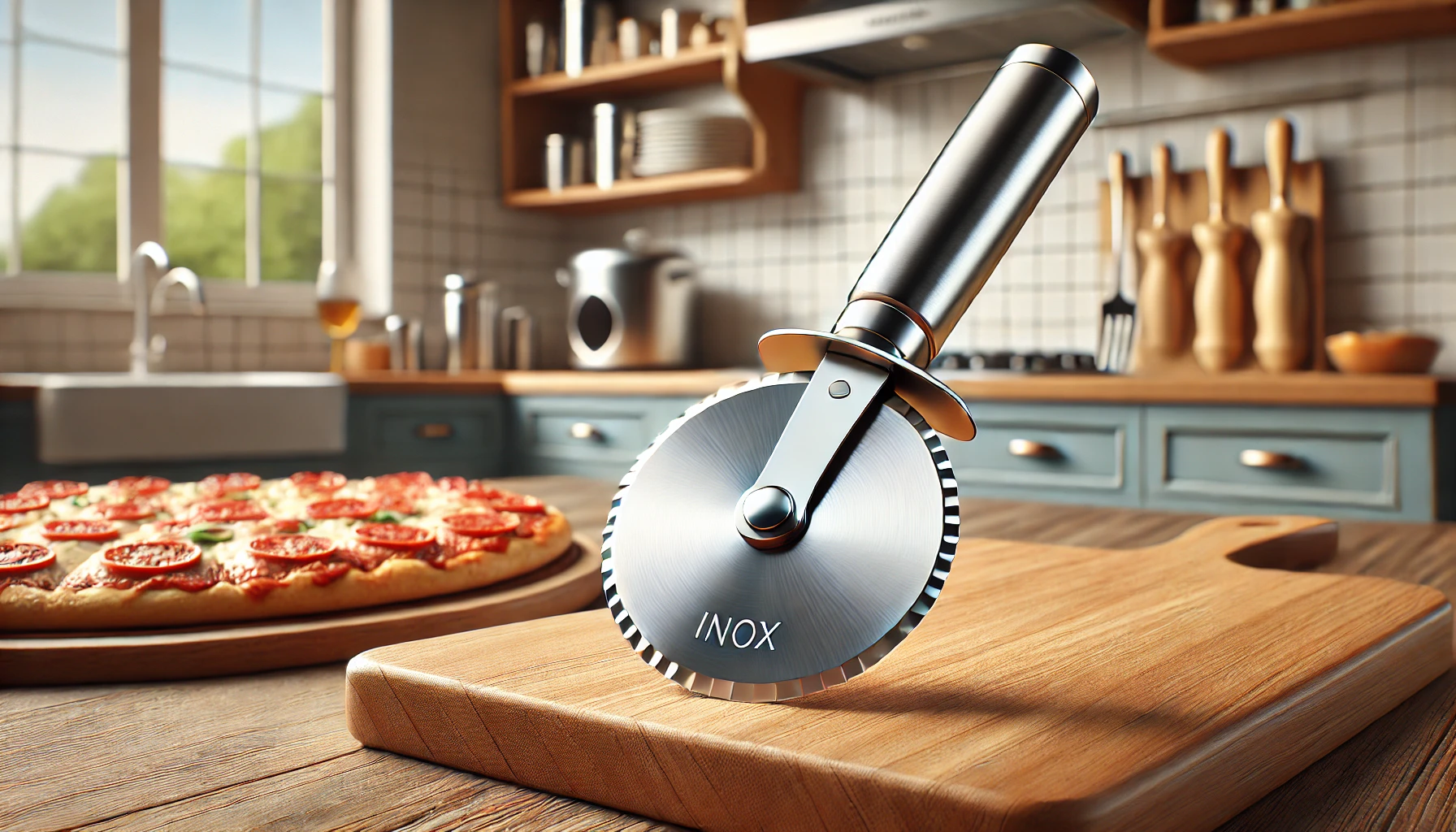When it comes to cutting the perfect pizza, one of the most overlooked yet crucial factors is the material of the pizza cutter. The material determines how well the blade cuts, how durable it is, how easy it is to clean, and even how safe it is to use. In this ultimate comparison, we’ll dive into the three most common pizza cutter materials: stainless steel (high – grade stainless steel), traditional stainless steel, and high – grade plastic. Whether you’re a casual home cook or a professional chef, understanding these materials will help you choose the best tool for the job.
Why Pizza Cutter Material Matters
Pizza cutter material isn’t just a manufacturing detail – it affects every aspect of the user experience. A high – quality blade will cut cleanly without pulling toppings, stay sharp longer, resist corrosion, and feel balanced in your hand. On the other hand, choosing a poor material can result in a dull blade, rust, or even a safety hazard. That’s why choosing the right pizza cutter material is so important.
Stainless Steel Pizza Cutter – Stylish and Durable
Stainless steel, a premium form of stainless steel, is increasingly popular in modern kitchens. It is known for its aesthetics and resistance to corrosion.
Favorable:
-
Extremely durable and corrosion resistant
-
Maintains a shiny, lustrous appearance over time
-
Food safe and does not react with acidic coatings such as tomatoes
-
Easy to clean and dishwasher safe
Disadvantages:
-
A little heavier than plastic, may feel less flexible
-
Usually comes with a higher price tag
Verdict:
If you’re looking for a professional, good – looking tool, stainless steel is one of the best pizza cutter material options on the market today.

Stainless Steel – Sharp and Professional
Traditional stainless steel is still the top choice for many kitchen tools, and pizza cutters are no exception. It offers the perfect balance of sharpness and reliability.
Favorable:
-
Very sharp, ideal for thick or deep – dish pizzas
-
Rust resistant, especially when properly cared for
-
Popular in professional kitchens for its performance
Disadvantages:
-
Small rust spots may appear if not dried thoroughly.
-
May require regular maintenance to maintain sharpness
Verdict:
For those who demand performance and sharpness, stainless steel is a strong contender for the title of best pizza cutter material.
Premium Plastic – Lightweight, Safe and Affordable
High – grade plastic pizza cutters are often found in homes with children or used as general kitchen utensils. They are not as sharp as metal pizza cutters, but they serve their purpose under the right conditions.
Favorable:
-
Lightweight, perfect for kids or the elderly
-
Generally safe, with minimal risk of injury
-
Very affordable and widely available
Disadvantages:
-
Not sharp enough for thick crust pizzas or pizzas with lots of toppings
-
Shorter lifespan, more susceptible to wear and tear
-
May melt or warp under high temperatures
Verdict:
Plastic is ideal for quick, casual slicing or in the home kitchen, but isn’t the best material for a pizza cutter in terms of performance or durability.
Which pizza cutter material is number 1?
After comparing performance, durability, maintenance, and safety, we believe the number one pizza cutter material for most users is stainless steel. It combines the sharpness and longevity of stainless steel with improved corrosion resistance and stylish design.
However, your specific needs are important:
-
Want a sharp blade for thick crust? Choose stainless steel.
-
Need a cheap tool for light use? Plastic might do the trick.
-
Do you like durability and long – lasting design? Choose stainless steel.
Quick comparison table
| Material | Advantage | Disadvantages |
|---|---|---|
| Stainless steel | Durable, rust-free, high-end look | Slightly heavier, higher cost |
| Stainless steel | Sharp, reliable, professional grade | Requires maintenance, may rust over time |
| Plastic | Light, safe, affordable | Not durable, not sharp, can be deformed |
Which one should you buy? Here’s a quick guide based on your needs:
| Use Cases | Best Material |
|---|---|
| Deep dish or deep crust pizza | Stainless steel |
| Fashionable, durable kitchen tools | Stainless steel |
Final Thoughts Choosing the best pizza cutter isn’t just about price – it’s about matching the tool to your personal needs in the kitchen. If you make pizza regularly, investing in a high – quality stainless steel or stainless steel cutter can save you time, effort, and frustration. But if you only cut pizza occasionally or want something light for the kids, plastic might be the way to go. Whatever you choose, remember: the right pizza cutter will make every slice taste better. Call to Action What pizza cutter do you use at home? Share your thoughts in the comments below and let other pizza lovers know which one works best for you. And don’t forget to share this article if you found it helpful.




